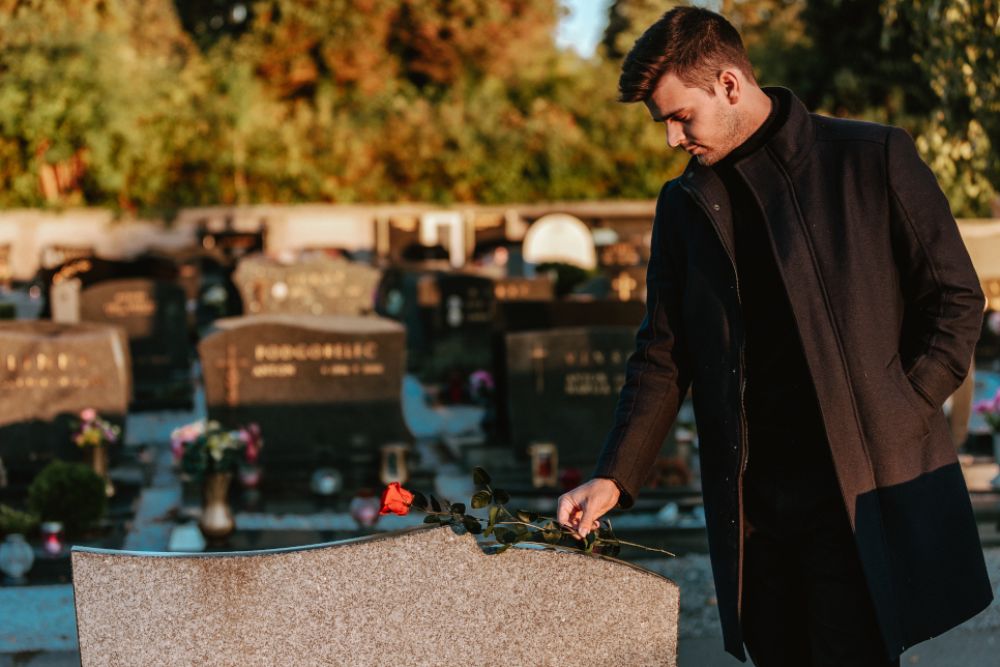
Grief when you lose a relative
When someone you’re close to dies, the usual reaction is shock. “It’s a traumatic crisis, a kind of shock-induced paralysis often linked to a ‘refusal to believe’, denial and repression. This is particularly true if the death was unexpected, for example in the event of an accident,” explains Monika Klose. In the first few days afterwards people will also display non-typical behaviours that are part of the shock. “People in this situation shouldn’t be left alone during this time.”
After this phase, which usually lasts between a few days and a week, the next stage is the reaction phase. People are often very busy and doing a lot: official business, organising the funeral, contacting a notary etc. “The person who is grieving gets a number of calls from friends and receives support,” says the psychologist. The person who has been left behind should also take some time to say goodbye in peace and not escape from reality too much using drugs or too many distractions.
However, during the subsequent processing phase, as psychologists call it, the contact from friends often ends, but that’s precisely when the person needs inclusion and activities that help them to think about something else. “When people lose someone close to them they can often be gruff. As a friend, try to still help them with their grief as well as you can during this phase,” says Klose. “Asking things like ‘how can I help you?’ or ‘do you want to try something new together?’ can really help them to manage”. The best thing would be to do things with the grieving person that are not linked to the person they have lost.
This is also important in the reorientation phase that lots of those who’ve lost someone have to go through because they need to rearrange their lives.
If you or someone you know wants to talk to a professional about this topic, please contact an Austrian family counselling centre. The appointments are free of charge.
Our interview partner
Dr Monika Klose is a health psychologist and part of the counselling team at PPZ Perchtoldsdorf, Lower Austria.
Pädagogisch Psychologisches Zentrum
Höhenstraße 15
2380 Perchtoldsdorf
Webseite des Pädagogisch Psychologischen Zentrums
The interview was conducted in November 2022.

_Wutregulierung.jpg)
_Akzeptanz.jpg)